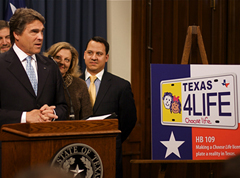KNOWLEDGE AND THE KNOWER—ETHICS
ETHICS VS. MORALITY
Child labor underpinning saspects of the fashion industry. Photo: Unicef
OVERVIEW
In this introductory ethics unit, students encounter, and are encouraged to quickly move beyond, simplistic notions of good/bad and right/wrong. The centrality of human agency and deliberate/intentional decision making, and all-important judgment in context, will be emphasized. The strengths and the limitations of examining consequences and following rules will be explored. Students will also encounter cultural relativism and notions of pluralism.
CLASS ACTIVITY: WHAT'S GOOD?
Jump straight in by asking students individually to think freely and write on one side of a card at least 8 examples of “What’s good?” On the other side of the card suggest 8 examples of “What’s bad?”
Next students are asked to write on a second card what they already understand by the the idea of ethics and/or morality. These initial responses will collected and revisited later.
Next, in pairs, students are prompted to make a personal list of rules to live by, three examples are offered to illustrate the activity but students can choose whether or not to include them:
“Keep your promises”
“Don’t kill”
“Avoid eating human flesh
CLASS DISCUSSION
Unleash class discussion and see what emerges from the “What’s good/what’s bad?” activity. The nine images on this page can be used as as stimulus to enliven the arguments. Ask the, by now very familiar, question "What is going on here?"
It is likely that the all-too-human idea of "agency" will emerge. We are conscious, social beings making intentional, often difficult decisions about how to act in the real world.
Next have some fun briefly mentioning the Dorian Gray painting. Then, offhandedly pick on a student to perform a public readings of Singer’s nuanced distinction between Ethics and Morality. If your “volunteer”resists, blame it on “random injustice.”
Students will now be primed for the Eight ethical frames unit that follows.
IS THERE A DIFFERENCE BETWEEN ETHICS AND MORALITY?
Still from the 1945 Hollywood version of Oscar Wilde's The Picture of Dorian Gray.
The original oil painting by Ivan Albright, commissioned for the movie and filmed, in stages, to mirror the protagonist's decline into decay and depravity over time, is part of the permanent collection of the Art Institute of Chicago.
In Ethics (1994) the philosopher Peter Singer provides a robust definition of ethics:
The word itself is sometimes used to refer to the set of rules, principles, or ways of thinking that guide, or claim authority to guide, the actions of a particular group; and sometimes it stands for the systematic study of reasoning about how we ought to act.
“Ethics” is derived from the Greek ēthikos, which refers to customs. According to Webster’s Dictionary, Roman philosopher and statesman, Cicero (106—43 BCE) translated ēthikos into Latin as moralis. Originally the terms “ethical” and “moral” were synonyms. Indeed, we still use the Latin word“mores” to describe the customs of specific social groups. Although the historical denotations are practically interchangeable, the actual usage and nuanced connotations of the two terms have drifted over the centuries. Again, according to Singer (1994):
‘Morality’ brings with it a particular, and sometimes inappropriate, resonance today. It suggests a stern set of duties that require us to subordinate our natural desires―and our sexual desires get particular emphasis here―in order to obey the moral law. A failure to fulfill our duty brings with it a heavy sense of guilt. Very often, morality is assumed to have a religious basis.
Singer, Peter (1994) Ethics (ed.) Oxford University Press.











